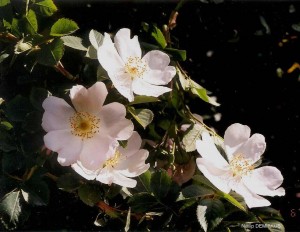While we are familiar with the common names of our houseplants, most of us do not know the botanical name of our plants. This is totally fine, for it is absolutely not necessary to memorize those long, daunting botanical names. We can just use the botanical names for reference when looking up information of our plants in guidebooks or websites. Here are the reasons why we use botanical names for plant identification.
Botanical Name of a Plant – The Breakdown
The botanical name of a plant is composed of two major parts, the genus and the species of the plant. For simplicity’s sake, genus is the family and species is a member of the family.
The genus refers to a grouping of plants that are similar in structure. The genus name always comes first and is capitalized. The species name is usually an adjective that gives a clue to the plant’s characteristics. The species name is not capitalized. In a text, they are written in italics
Botanical Name – An Example
For example, Rosa canina, a pretty flowering plant.
Rosa is the genus, canina is the species.
Rosa canina
genus species
Abbreviating the Genus Name
When a writer refers to a genus more than once, its first initial may be used in later references. Thus, the Quercus genus refers to all species of oak trees. White oak is called Quercus alba, and red oak is Quercus rubra, or I could write Q. rubra. When referring to various oaks, I could also call them Quercus spp., meaning “oak species plural”.



Recent Comments